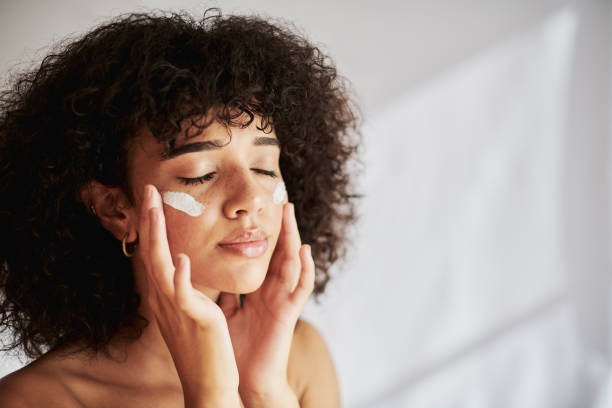Explore helpful tips on managing eye area concerns naturally
The delicate skin around your eyes requires special attention and care to maintain its health and appearance. Common concerns like puffiness, dark circles, and fine lines can develop due to various factors including genetics, lifestyle habits, aging, and environmental stressors. Understanding the unique characteristics of this sensitive area is essential for developing an effective care routine. The eye area has thinner skin with fewer oil glands, making it more susceptible to dryness and damage. Fortunately, natural approaches can help address these concerns while being gentle on this fragile skin.

Gentle routines for eye care
Establishing a consistent and gentle routine is fundamental for maintaining healthy eye area skin. Start with clean hands and use products specifically formulated for the delicate eye region. Apply eye cream or serum using your ring finger, which applies the least pressure, and gently pat from the inner corner outward. Avoid pulling or stretching the skin during application. Choose fragrance-free products with gentle ingredients like hyaluronic acid, peptides, or ceramides. Remove makeup thoroughly but gently using a dedicated eye makeup remover rather than harsh rubbing. Consider using a silk or satin pillowcase to reduce friction while sleeping, and always wear sunglasses outdoors to protect against UV damage.
Hydration tips for brighter eyes
Proper hydration plays a crucial role in maintaining the appearance of the eye area. Drink adequate water throughout the day to support overall skin hydration from within. Apply a hydrating eye cream twice daily, focusing on ingredients like hyaluronic acid, glycerin, or aloe vera that help retain moisture. Use a humidifier in your bedroom to prevent overnight dehydration of the skin. Consider incorporating hydrating face masks that extend to the eye area once or twice weekly. Avoid excessive caffeine and alcohol consumption, which can contribute to dehydration. Store eye creams in the refrigerator for an additional cooling and depuffing effect when applied.
Lifestyle changes for skin comfort
Simple lifestyle modifications can significantly impact the health and appearance of your eye area. Prioritize getting 7-9 hours of quality sleep each night, as insufficient rest can contribute to puffiness and dark circles. Sleep with your head slightly elevated to reduce fluid retention around the eyes. Manage stress through relaxation techniques like meditation or yoga, as chronic stress can affect skin health. Maintain a balanced diet rich in antioxidants, vitamins C and E, and omega-3 fatty acids. Limit salt intake to reduce water retention that can cause puffiness. Quit smoking, as it accelerates skin aging and reduces circulation to the delicate eye area.
Natural solutions for dark circles
Dark circles can result from various factors including genetics, thinning skin, poor circulation, or lifestyle habits. Cold compresses using chilled cucumber slices, tea bags, or cold spoons can help constrict blood vessels and reduce the appearance of darkness. Green tea bags are particularly beneficial due to their caffeine content and antioxidant properties. Gently massage the eye area to improve circulation, using circular motions with a light touch. Ensure adequate iron intake through diet, as iron deficiency can contribute to dark circles. Consider using natural ingredients like vitamin C serum or retinol products designed for the eye area, but introduce them gradually to avoid irritation.
Practical advice for eye area concerns
Address specific eye area concerns with targeted natural approaches. For puffiness, try lymphatic drainage massage using gentle upward strokes from the inner corner to the temples. Apply cold therapy immediately upon waking to reduce morning puffiness. For fine lines, focus on prevention through consistent moisturizing and sun protection. Use products containing natural anti-aging ingredients like vitamin E, rosehip oil, or peptides. Create DIY eye masks using natural ingredients like honey, oatmeal, or mashed avocado for additional nourishment. Be patient with natural remedies, as they typically require consistent use over several weeks to show noticeable results. Document your progress with photos to track improvements over time.
Consistent application of these natural approaches can help improve the overall health and appearance of your eye area. Remember that individual results may vary, and what works for one person may not work for another. It’s important to patch test new products or ingredients before applying them to the sensitive eye area. If you experience persistent irritation, unusual changes, or concerns that don’t improve with natural methods, consider consulting a dermatologist or healthcare professional for personalized guidance. The key to success lies in patience, consistency, and choosing gentle methods that work well with your skin type and lifestyle.




